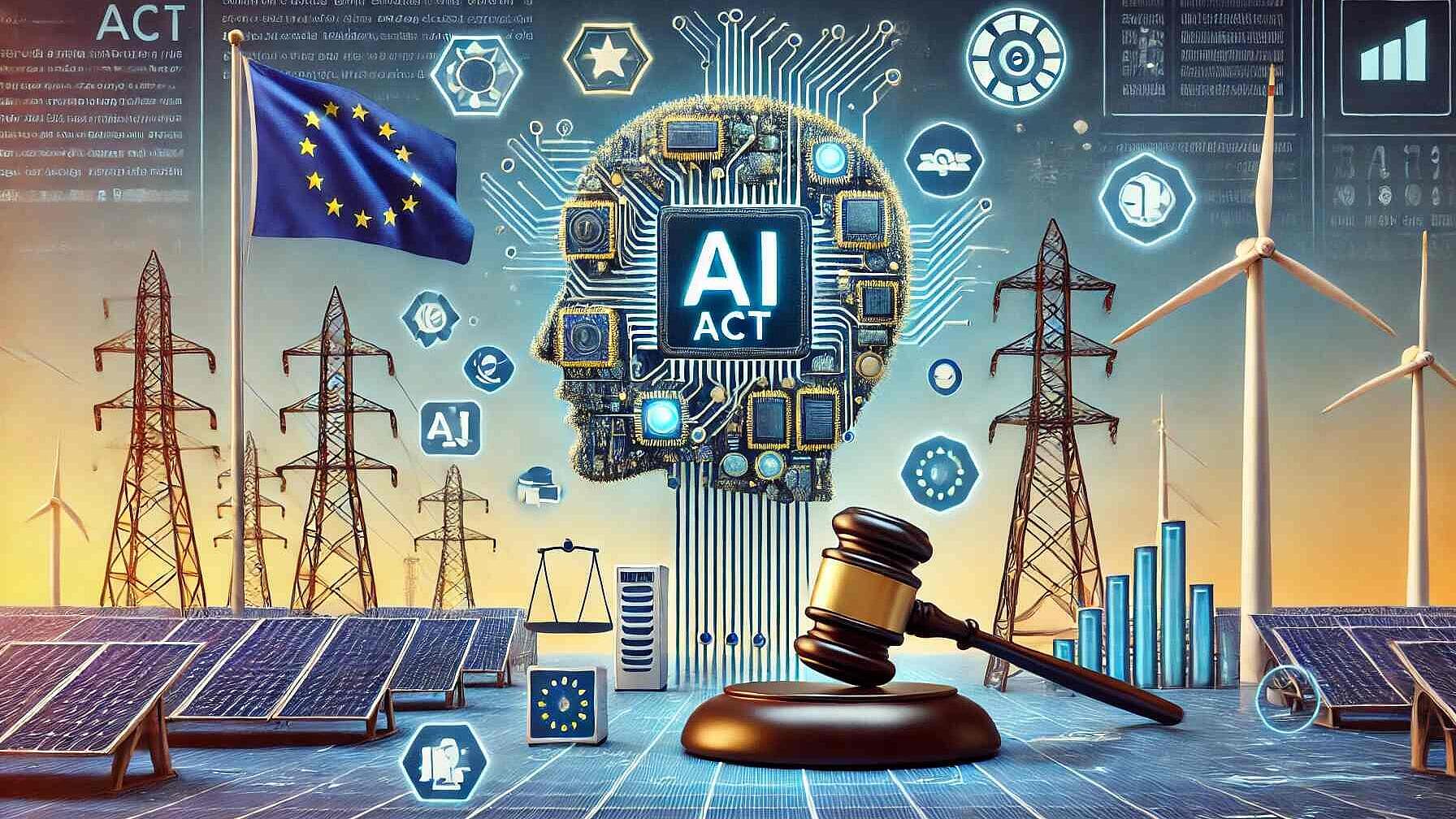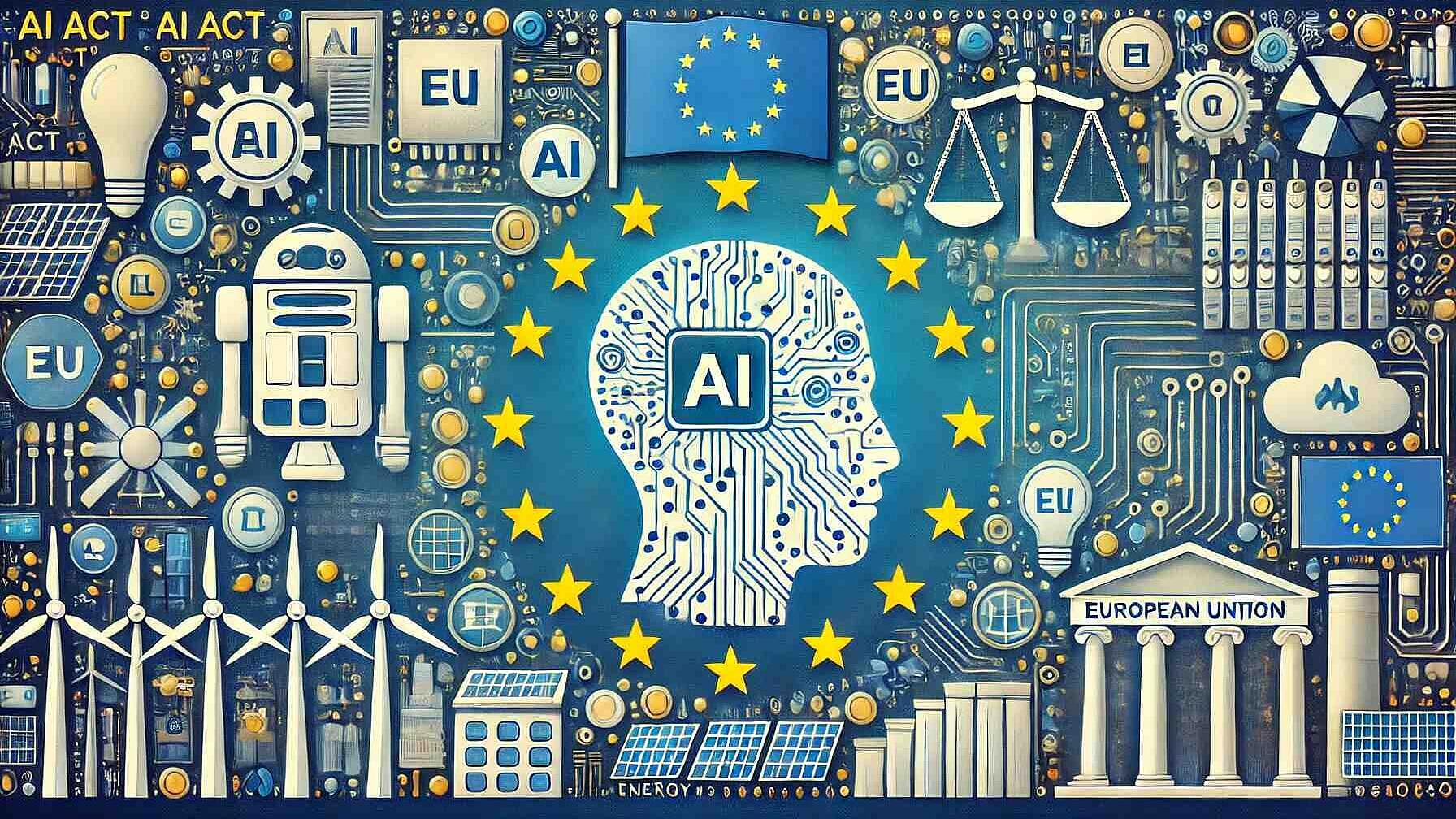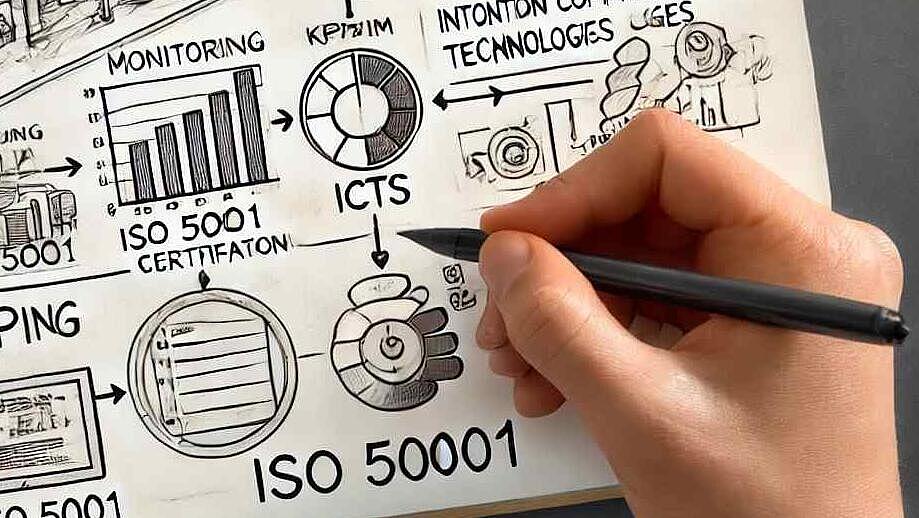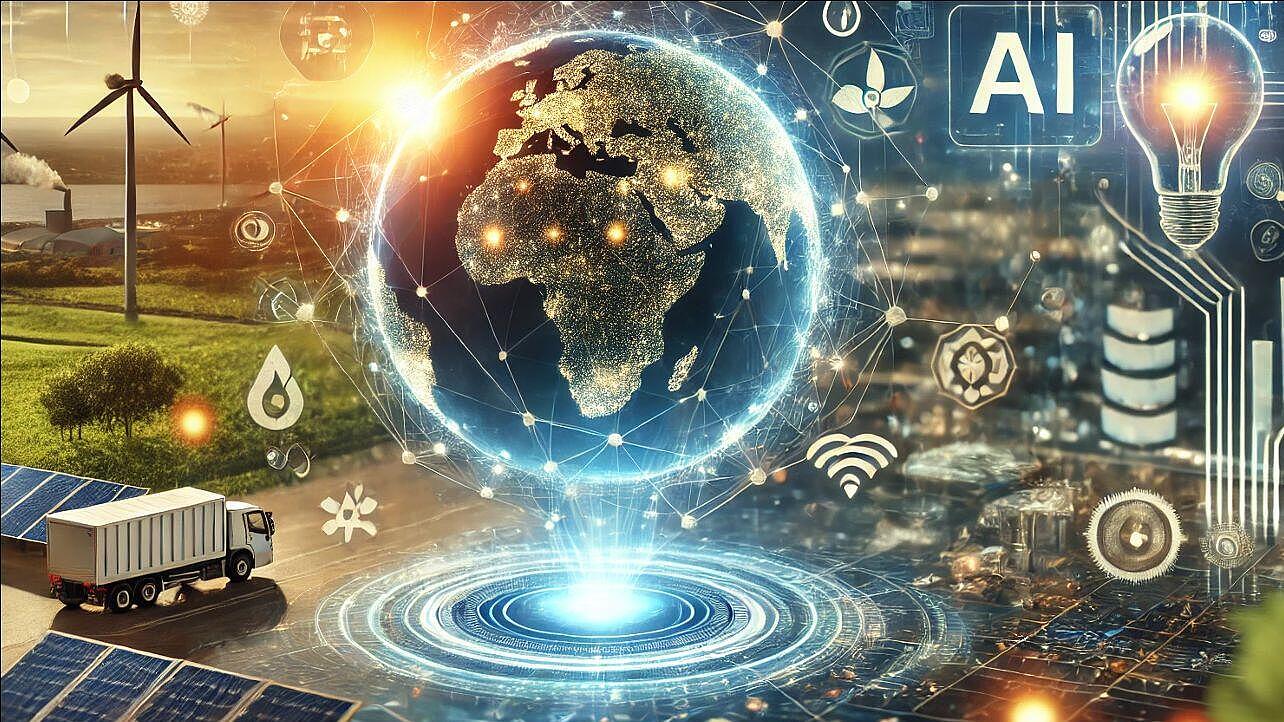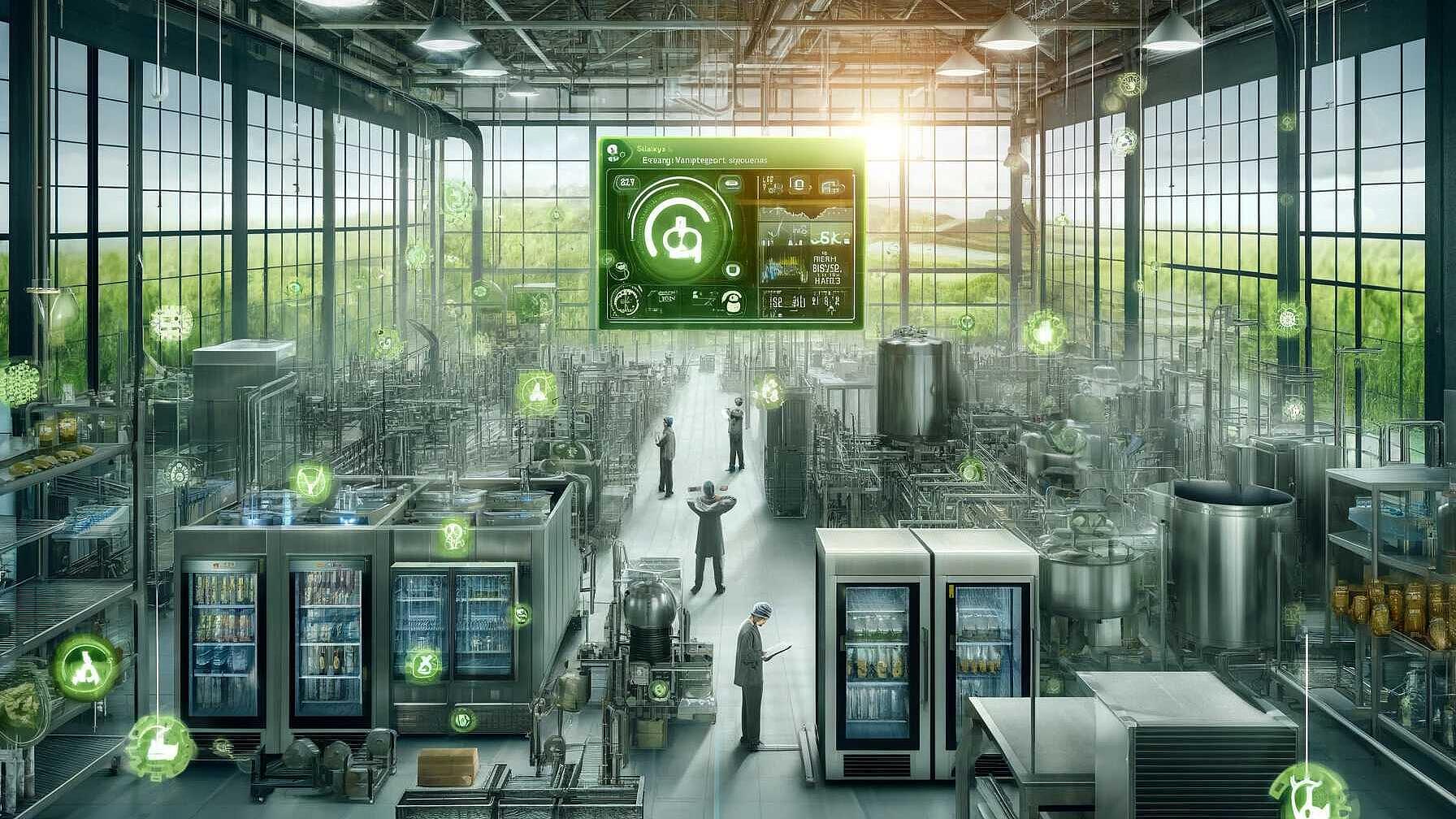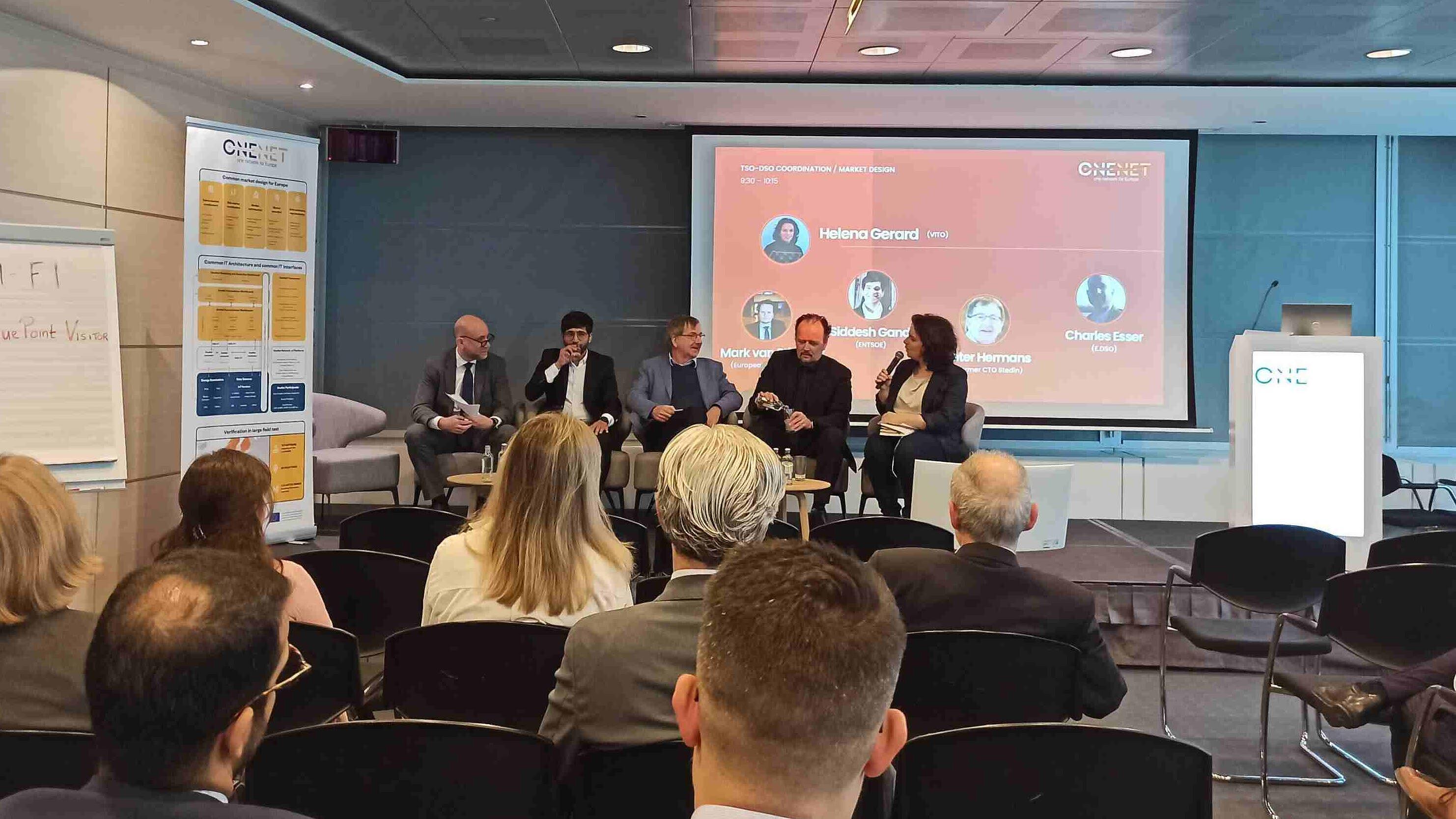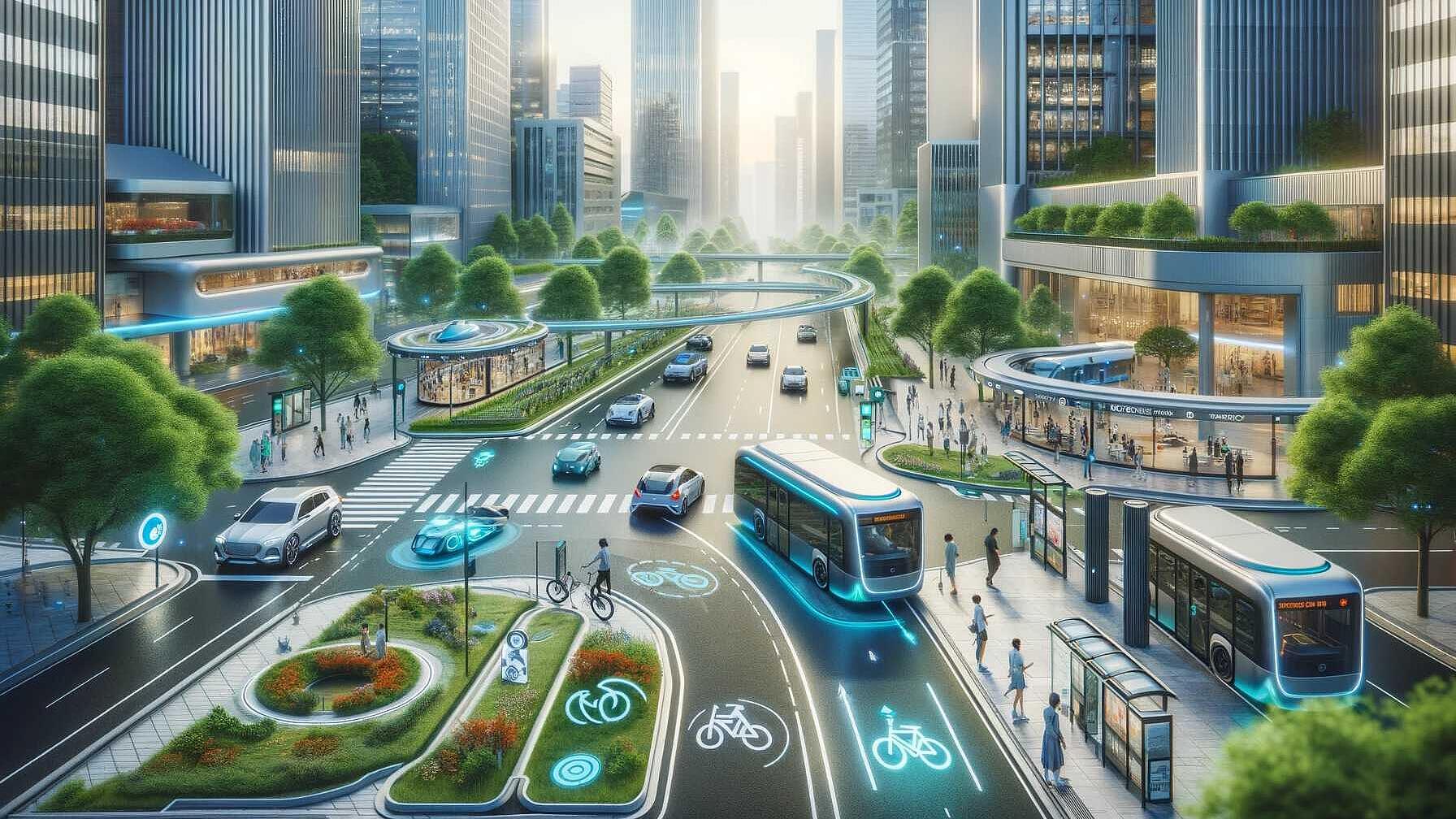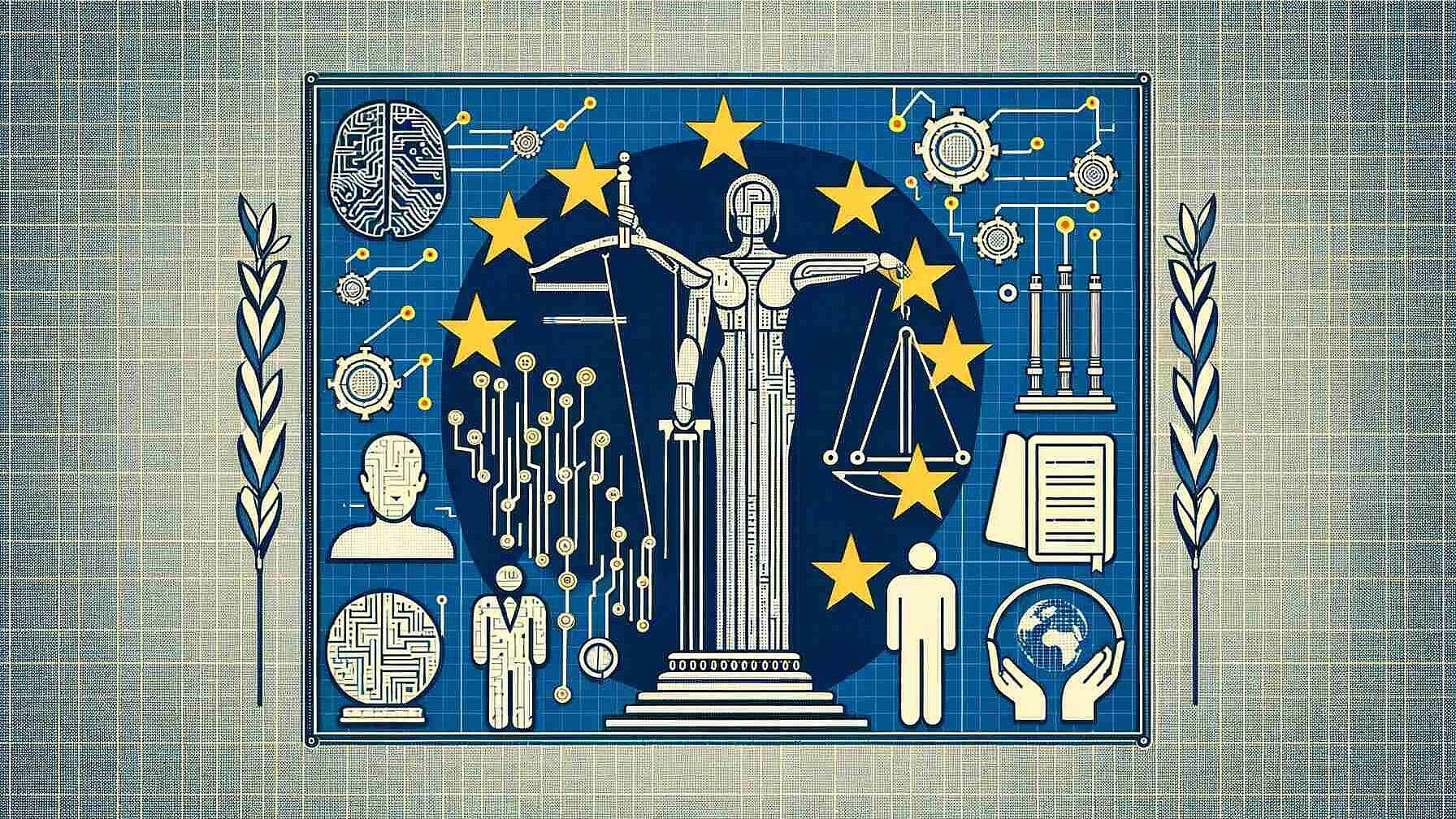 Digitalização
DigitalizaçãoDigitalização
Top 10 EU Initiatives for Digitalizing the Energy System: Transforming Europe’s Energy Landscape
The paper examines the European Union's efforts to digitalize the energy sector in pursuit of its 2030 and 2050 climate goals. This involves integrating renewable energy, optimizing grid functionality, improving energy security, and empowering consumers through digitalization. Ten key initiatives by the EU are highlighted: 1. EU Action Plan on Digitalising the Energy System aims to enhance connectivity and security, emphasizing a real-time data exchange framework and energy efficiency through smart grids and 24 key actions. 2. Common European Energy Data Space is under development to securely share energy data, supported by the Digital Europe Programme to facilitate smart grid utilization and energy efficiency. 3. Digital Twin of the European Electricity Grid seeks to simulate and optimize grid performance, especially incorporating fluctuating renewable energy sources, supported by Horizon Europe funding. 4. Smart Energy Expert Group, established to guide digitalization of the energy sector while aligning with climate targets, promotes policy advice and innovation. 5. Interoperability Requirements for Energy Data were set to enable seamless data sharing, critical for customer empowerment and grid efficiency. 6. Code of Conduct for Energy-Smart Appliances to standardize interaction of appliances with the grid, enhancing demand response and flexibility of the energy system. 7. Pan-European Operational Digital Platforms are being developed to support real-time data exchange and renewable integration, funded by the Connecting Europe Facility. 8. Research and Innovation Funding supports digital energy technology through substantial investments from various EU programs. 9. Green Digital Coalition endeavors to create tools to measure digital technologies' environmental impact, aiming to decrease carbon emissions and improve energy conservation. 10. GEDI-EU Platform facilitates collaboration among energy and digital innovators, working to integrate digital solutions in support of the energy transition. Although the initiatives are designed to work cohesively, challenges such as standardization and the balance between innovation and regulation might impede progress. The EU must thus ensure refined policies and governance to realize an efficient and sustainable digitalized energy system.
Leer Artigo completoThe AI Act: Shaping Europe's Digital Future and Transforming the Energy Sector
The EU's AI Act introduces a risk-based AI regulation system, banning high-risk practices and enforcing strict requirements for market placement. It includes obligations for both in-EU and foreign entities affecting EU citizens and establishes a governance framework for consistent application, promoting ethical and trustworthy AI development through detailed standards and best practice codes. Significant penalties ensure compliance, while tailored provisions support SME innovation, all impacting broad sectors, including energy, where AI-driven efficiencies require adherence to these new regulations.
Leer Artigo completoThe Future of AI: Navigating the AI Act and its impact on energy transition
The EU's AI Act introduces a risk-based framework for AI, mandating requirements for high-risk systems and enforcing compliance. It addresses AI's potential in energy optimization, while emphasizing fundamental rights, safety, and a human-centric approach, with the IEA highlighting AI's role in achieving sustainability goals.
Leer Artigo completoEnergy Efficiency in Food Manufacturing: Sustainable Growth Through Smart Technologies
The paper discusses the critical role of energy efficiency in food production, emphasizing the need for food manufacturers to adopt energy management practices to remain competitive and sustainable. It outlines the benefits of benchmarking and KPIs, the adoption of frameworks like ISO 50001, and the utilization of advanced monitoring, control systems, and ICT for improved energy performance. It also addresses barriers to implementation and strategies for overcoming these challenges.
Leer Artigo completoEEIP Leads the Way in Transparent and Responsible AI Use
EEIP's AI policy emphasizes transparency, ethical behavior, and data protection, aligning with EU guidelines to foster trust and drive responsible AI in the energy sector for sustainable, innovative solutions like CircularPSP and DMaaST, within regulatory compliance.
Leer Artigo completoEnergy Insights: The Secret Sauce for the Food and Beverage Industry
The paper outlines how food and beverage companies can use Energy Management Systems to cut costs, increase efficiency, and promote sustainability by using real-time data and predictive maintenance, bolstered by IoT and smart sensor technology.
Leer Artigo completoDigital Supply Chain Dynamics: Insights from Indonesia’s Food and Beverage Industry
The study explores how digitalization enhances operational performance in Indonesia's food and beverage sector, stressing improvements in quality, productivity, and cost efficiency through technologies like IoT, robotics, cloud computing, and blockchain.
Leer Artigo completoTRANSFORMATIVE EFFORTS IN RESHAPING EUROPE'S ELECTRICAL LANDSCAPE: INSIGHTS FROM THE ONENET PROJECT FINAL EVENT
The OneNet Project Final Event marked the culmination of efforts to reshape Europe's electricity system. Key topics included TSO-DSO coordination, market design, consumer engagement, and leveraging data for grid operations. The initiative aligns with EU interoperability objectives and promotes a sustainable, unified market.
Leer Artigo completoRevolutionizing Transit: Europe's Top Smart Mobility Solutions
Europe advances smart mobility, driven by sustainability and urbanization challenges. EU policies promote electric and autonomous transport, integrating innovations like IoT, MaaS, and AI. Case studies from Barcelona, Stockholm, and Amsterdam highlight smart solutions reshaping urban travel, setting global benchmarks.
Leer Artigo completoArtificial Intelligence Act: Landmark Deal Reached for World's First AI Rules
The EU's Artificial Intelligence Act, following a three-day negotiation, aims to integrate AI into the European market, balancing innovation with fundamental rights protection. The act's risk-based approach sets stringent rules for high-risk AI applications, excludes certain AI uses, and provides specific law enforcement exceptions. It establishes a governance system, including an AI Board, and introduces penalties for violations. The legislation will take effect two years post-enactment, with a focus on transparent and responsible AI development.
Leer Artigo completo
